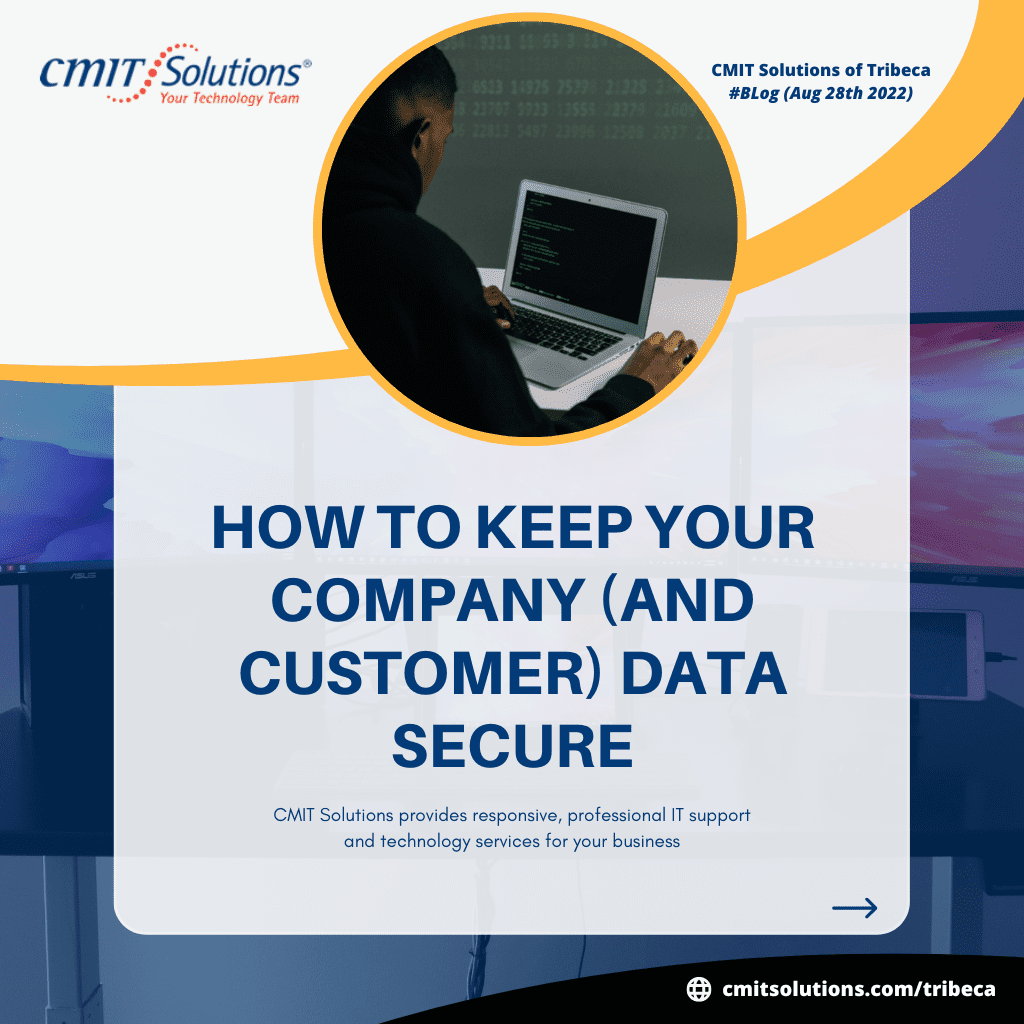Although you would assume that only large enterprises need to worry about data privacy, small businesses also need to. Data protection is a requirement for any corporation because hackers and other dishonest individuals frequently target small organizations to steal important information. By putting data protection measures into practice, you can retain a stellar reputation, prevent operational downtime, keep your data secure, and protect your company from lawsuits.
Learn more about data protection, including what it is and its importance. The top dangers of not having data protection as well as some of the best advice for adopting data protection policies at your company may also be of interest to you.
Data protection: What is it?
The term “data protection” refers to the numerous procedures and defenses put in place to guard against the compromise, loss, theft, and corruption of the data held by an organization. Organizations protect themselves and their clients from identity theft and phishing schemes by employing data protection. Among the principal categories of data that businesses want to safeguard are:
- Email addresses
- Phone numbers
- Names
- Medical information
- Bank and credit card details
- Home addresses
Why is data security important?
Many businesses are processing more and more data due to the growing reliance on the cloud and online transactions. Bad actors are always trying to compromise an organization’s data security for their own purposes, both from within and outside the business. Data breaches frequently try to steal information from a business for the purpose of selling it or utilizing it fraudulently.
A data breach can do a lot of damage since businesses manage a lot of personally identifiable information (PII) from stakeholders, customers, and workers. Data breaches that take particularly sensitive PII, such as social security numbers, driver’s license, and passports, can have some of the most harmful consequences.
An organization and anybody who has given the organization data are vulnerable to serious harm if a malicious actor obtains this information.
Due to the potential financial costs associated with data breaches and losses, small businesses should place a premium on data protection. A company’s reputation may suffer if it fails to safeguard its confidential data and permits data breaches. An organization may experience a decline in income from unhappy customers as a result of this damaged reputation. Additionally, organizations that violate security standards may be subject to fines, which could put an undue financial burden on small businesses.
What are CCPA compliance and the GDPR?
When talking about corporate data protection, the California Consumer Privacy Act (CCPA) and the General Data Protection Regulation of the European Union are two legislation that commonly come up (GDPR). Because of these restrictions, consumers now have the right to know what information a company is gathering about them, what information is sold or shared, and who receives their data when it is sold or shared. The CCPA and GDPR both apply to small businesses, so it is essential that they follow them.
What is PII?
PII includes a range of information, including:
- Email addresses
- Personal identifiable financial information
- IP addresses
- Mailing addresses
- Social Security numbers
- Phone numbers
- Login IDs
- Social media posts
Organizations must safeguard PII against getting into the hands of unscrupulous actors since they handle numerous types of PII. Typically, after a data breach, the hacker will try to sell the stolen PII to third parties or use it against the enterprise.
Non-sensitive PII and sensitive PII are the two categories into which PII is typically divided. Information that may be rapidly gathered from public records, such as zip codes, ethnicity, or gender, is referred to as non-sensitive PII. Info breaches that merely reveal this data normally don’t cause many people too much harm because it’s not sensitive. Comparatively, sensitive PII like social security numbers, passports, and driver’s license can all cause serious harm to people if they are taken.
Recognising the dangers of data protection lack
Small and medium-sized enterprises may mistakenly believe that they are not at great danger from data breaches. Typically, they think that negative actors target bigger firms more frequently. This assumption is false, though, as 43% of data breaches involve small and medium-sized firms.
Despite the fact that major corporations are the ones that incur the most breaches, data protection is a requirement for all organisations. However, there are also a lot of breaches that affect small and medium-sized organisations.
When companies don’t take data security concerns seriously, they run a range of risks. Here are some of the primary risks associated with data loss:
1. Issues with credibility
Losing credibility with your clients and consumers is one of the major hazards of not securing your data. Even if a client is not directly impacted by a data breach, they will probably have less faith in the company going forward to preserve their sensitive information. A sizable chunk of clients will probably stop doing business with the company as a result of this lack of trust and turn to someone else for their needs.
Even while some consumers won’t quit, they could express their displeasure with the business in discussions or on social media. An organization may experience user backlash in addition to a news cycle that discusses the breach and raises awareness of it. Potential customers may wind up avoiding a business as a result of negative press from media outlets and customers. Simply said, customers and clients want their data to be safeguarded, and if your firm fails to do so, they’ll go to a company with a stronger reputation for data security.
2. Economic losses
Organizations may incur financial losses as a result of a lack of data protection. According to a report from 2021, the average cost of data breaches had risen to $4.24 million, a 10% increase from the year before. The same study discovered that when a firm uses remote workers, the average cost increases to $4.96 million. Data protection is crucial given the potential impact these financial losses could have on a company.
The high costs of data breaches typically result from a variety of activities a firm may need to take as a result of a data breach, including:
- compensating clients that were harmed by the breach
- Investing in fresh security measures
- paying for legal costs
- paying for a probe to find out how the hack happened
If the company wasn’t adhering to specific security rules, a data breach may potentially result in regulatory sanctions.
3. Invoking the law
Another significant risk that businesses expose themselves to when they don’t have adequate data protection is legal action. Organizations are legally compelled to demonstrate that they have taken the necessary steps to secure the personal data of their customers and workers in accordance with data protection legislation. People may file a lawsuit against a firm and demand compensation if their data is compromised and stolen.
If an organisation loses the case, it may be required to pay millions of dollars in damages. Equifax was compelled to pay US consumers up to $700 million in compensation as a result of the 2017 data leak. In addition to the costs associated with compensation, an organisation will have to invest time and money in its legal defence, and its reputation will also be harmed. A proper data privacy policy is essential owing to the costs and problems with credibility that come with taking legal action.
4. Data loss
Sensitive personal information may be stolen in a data breach, with serious repercussions for the firm and any consumers who were impacted. When utilizing someone’s personal information for scams or fraud, hackers can cause a lot of harm. Bad actors frequently target information like IP addresses, contact details, and financial information due to the value of sensitive data. Along with the negative effects on customers, having customer data stolen can seriously affect a business’ operations because hackers frequently erase the data they take.
5. Downtime in operations
The operational downtime that will follow a data breach is a big risk that firms don’t frequently take into account when thinking about their data protection. A responsible organization must contain a data breach when it happens before looking into how it happened. The inquiry will also need to examine the systems that were accessed and the data that was impacted. A business may need to completely cease operations throughout the containment and investigation phases until the investigation is finished.
An organization’s operational downtime may be significant as a result of the days or weeks it may take to finish an inquiry, which could result in lost sales and disgruntled clients. Companies with little in the form of savings or a safety net for crises may be particularly vulnerable to the loss of revenue. Operations may continue to be interrupted even after the company restarts operations as staff members put new security measures in place and attend any necessary training sessions.








